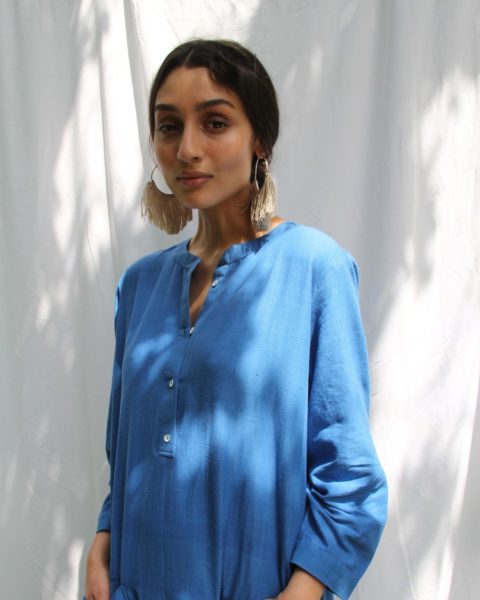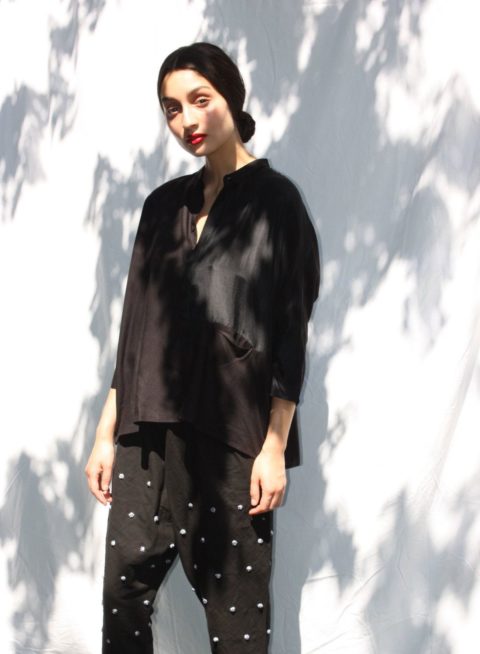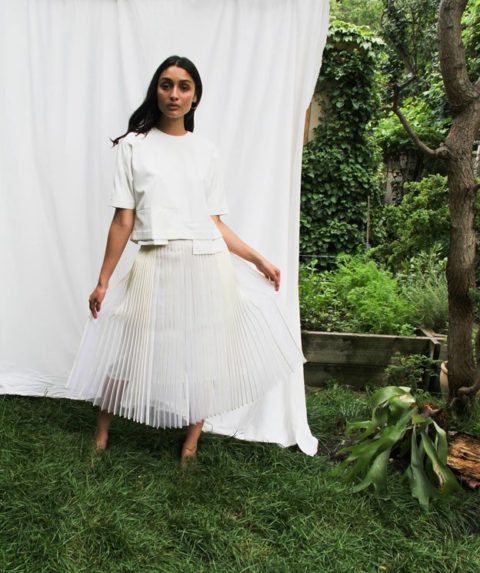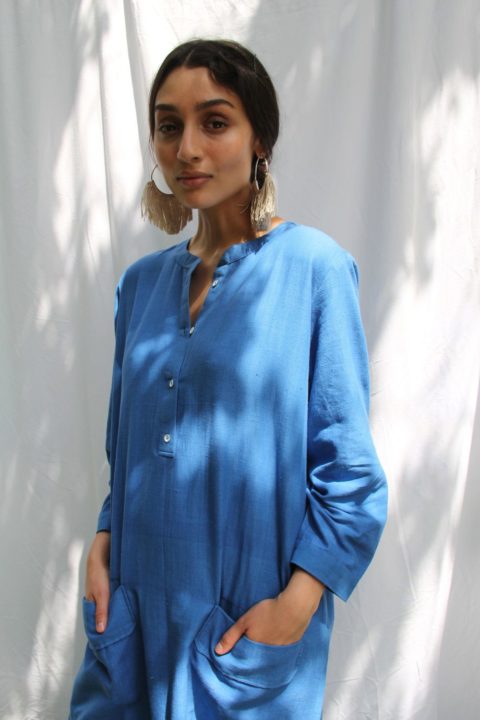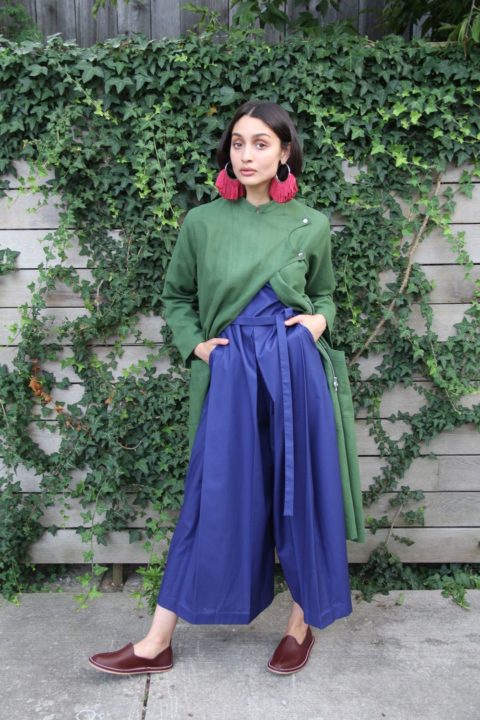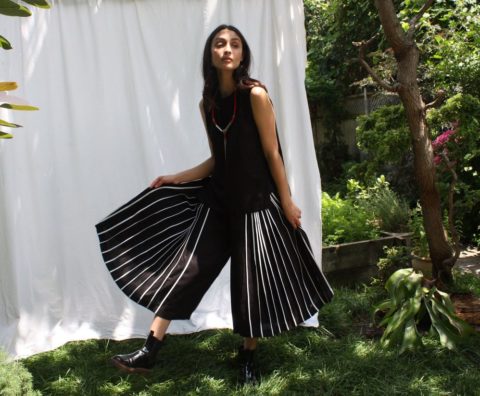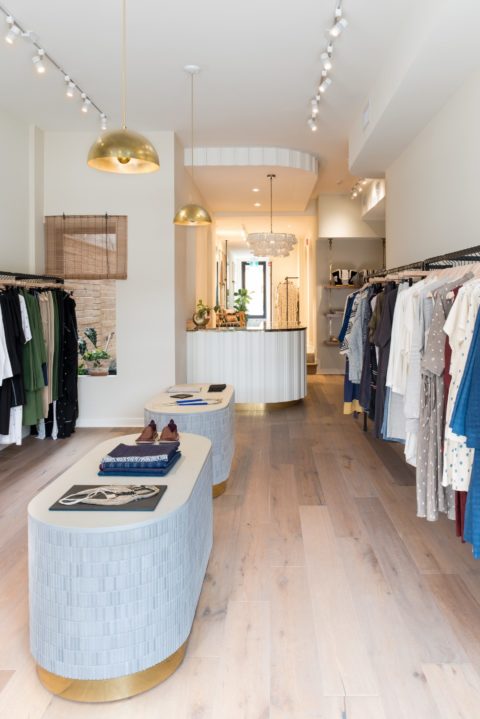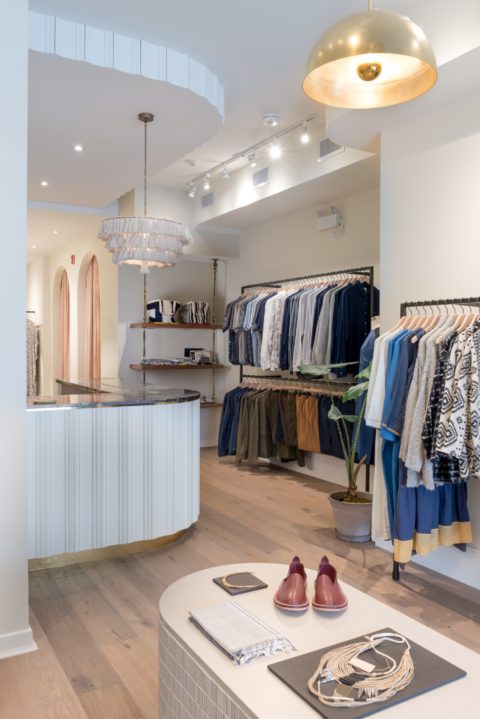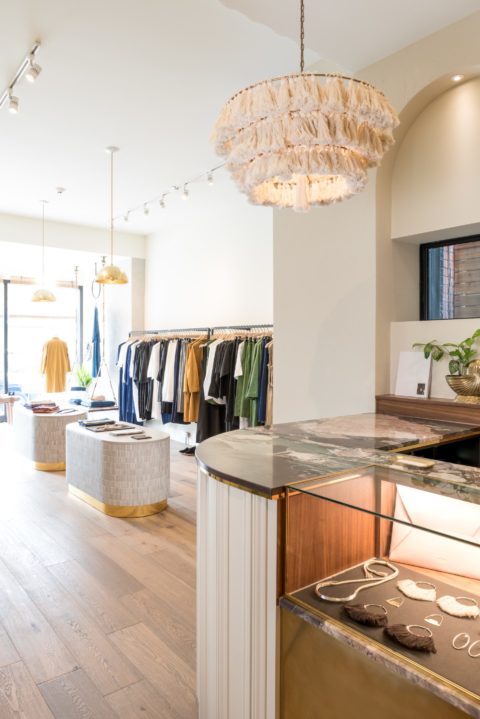This Toronto Store Will Change the Way You Think About Indian Fashion
A natural-dyed shirt dress is in the window. An organza skirt with applique pleats on one rack, a hand-spun silk jacket on another. Hand-embroidered cotton trousers in one corner. A jute and stainless steel statement necklace on a low table. A few steps into Aloja, the newest arrival on Toronto’s bustling College Street, and you know you’re in for something unusual.
“When people come in, they immediately know there’s something different about the store, but they can’t put their finger on it,” smiles Sabrina Ramos, owner of the store. “When I tell them everything is from India, they go ‘ah,’ like ‘yes, that makes sense.’”
There may not be any overtly Indian elements like bright colours or loud embellishments in sight, but that’s what makes it an honest representation of Indian fashion today. The country’s new crop of designers is focused more on a concept of everyday luxury rooted in craftsmanship, handwoven textiles and artisanal details rather than high-impact ‘occasion wear’ or fast fashion. “When you see the clothes you can see all the effort that goes into a single piece,” says Ramos, a former fine-dining chef from Brazil. “It’s not over-done or maximal, but the little details show how well-made it is. There’s a history there, there’s life there. Even the printing – it’s block printing, done by hand. It’s all very special. And people see that, people feel it.”
In essence, what Aloja offers is a refreshing, contemporary look at India’s evolving design aesthetic. For the uninitiated, walking through the store is likely to be an eye-
opener, not dissimilar to Ramos’ own journey of discovery—one that commenced in 2005 with her first visit to India after marrying an Indian-Canadian from Vancouver.
“I fell in love with India right away,” she says. “I was crazy about the textiles—I would come back home with suitcases full of fabrics that I didn’t even know what I was going to do with. Little by little, with every trip, I began discovering brands that were new, different, and doing things you wouldn’t see in Canada. And I knew there would be a market for them here.”
As Ramos’ own closet began to fill with pieces purchased over the years in India, she realized they translated as well to the streets of Toronto or Montreal as New Delhi or Mumbai. And it’s this unexpected global versatility of modern Indian fashion that she wants to showcase through her store.
“At Aloja I wanted to put together clothes for the everyday, that can take you from day to night,” she explains. “I also made sure to stock lifelong pieces that women will love today, and will love several years from now—classic styles that go beyond ‘fashion.’ I can see women wearing separates from the Bodice label for work. They’re very well constructed, and very urban. The brand 11.11 has a selection of 100% handmade pieces. That’s what I love about designers in India and the work they’re doing. It’s handmade, hand-dyed, but easy, wearable, great quality. And then I have pieces like the sari dress from Rashmi Varma, which is stunning, like a piece of art. And so modern, so cool. If I’m going to a concert or music festival, I would love to wear that.”
When asked if she was ever worried about misrepresenting Indian fashion and contemporary culture, she says, “I didn’t think about that at all. For me, it’s simple: I love India. I love the products and craftsmanship, and I wanted to give Indian designers and artisans a market here. That’s all. There are French brands here, Japanese brands, Italian, so why not Indian?”
Besides the eight menswear, womenswear and accessories labels she curated from India, Ramos has also included some other labels whose aesthetic is rooted in artisanal techniques and craftsmanship. “All the brands have a connection to the handmade,” she says. These brands include Vayarta, which offers loafers handmade and hand-dyed in Puerto Vallarta, Mexico; Canadian designer Laura Siegel, who works with artisans and craftspeople in India and around the world; and Mercado Global, whose handbags are made by indigenous Mayan women in Guatemala.
“My boutique is a place where you come in, try things on, feel the fabrics, experiment, not be in a hurry, no rush…” she says. No wonder she named the store Aloja, which means to host or to accommodate in Spanish—an invitation to linger is built right in.

